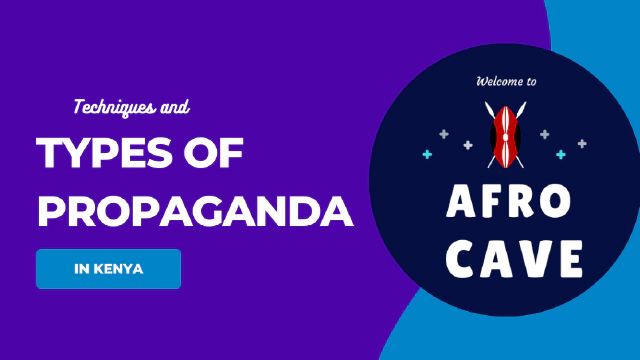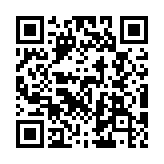There are various ways in which propaganda in Kenya portrays itself. Propaganda is any technique that attempts to influence the opinions, emotions, attitudes, or behaviour of a group in order to benefit the sponsor.
You can equate propaganda in Kenya to the popular saying that ‘a joke is only funny when it is not about you.’
Ethical limits to the use of propaganda in Kenya include defamation laws and the laws of hate speech.
To Kwame Nkrumah, propaganda is “a means of liberation, an instrument of clarification, information, and mobilization”.
Table of Contents Show/Hide
Techniques of propaganda in Kenya
Bandwagon is a persuasive technique that invites people to join the crowd, “Everybody’s doing it!”
Testimonial involves using statements by prominent people such as musicians, sports personalities, and actors to endorse a person.
Snob Appeal aims to flatter the voters into believing they are select and special e.g. the use of helicopters & the latest brand vehicles in campaigns.
Mwananchi Pose is where a candidate identifies with a locality to appeal to ordinary people.
Patriotism is using love for one’s country or community to create the impression that choosing one candidate over others makes one loyal and true.
Evidence Claims involves the use of data (facts and figures) – statistics – to prove something. In Kenya, the Evidence Claims type of propaganda usually stretches to religious prophecies about who will win elections.
Transferring is the attempt to connect positive feelings or desires to a candidate e.g. saying someone is the most pretty presidential candidate (Remember Peter Kenneth in 2013?).
Scapegoat is where a person is made to carry the blame for others and is used to win people over through association or sympathy, e.g. the statement “Our community is being targeted in the fight against corruption.”
Name-Calling is a way of smearing an opponent to damage their reputation, arouse suspicion and create uneasy feelings around them, e.g. “S/he is an anti-reform politician”
Sloganeering involves using catchwords or phrases loaded with emotion, which sponsors sell out through repetition e.g. Moi Must Go! (The slogan used by the NARC Coalition in 2002 General Elections).
Common types of propaganda in Kenya
Propaganda is of three types: White, Grey, and Black.
Grey Propaganda is a mix of white and black. You may not say who you are, or where the facts come from, but much of the information is true.
Black Propaganda information cannot be verified except by personal research, which many do not conduct. It plays on gullible or stupid peoples’ minds to believe it.
White Propaganda contains accurate information and is positive in nature.
Propaganda as a means of persuasion
In some cultures, the term ‘propaganda’ is neutral or even positive. For others, the term has acquired a strong negative connotation
In the early 20th century, propaganda was exemplified in party slogans. Nascent public relations founders used propaganda to refer to their activities.
It has become more common in political contexts in certain efforts sponsored by governments, political groups, & covert interests.
Propaganda was often used to influence opinions and beliefs on religious issues, particularly during the Reformation
Propaganda is generally an appeal to emotion, not intellect. It shares techniques with advertising and public relations
Advertising and Public Relations are propaganda that promotes a commercial product or shape the perception of an organization, person, or brand.

